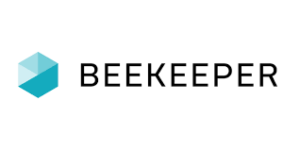The rise of digitization and its growing importance has been highlighted more significantly since 2020 due to the Covid-19 pandemic, Daniel Sztutwojner, Chief Customer Officer and Co-founder at Beekeeper shares a few thoughts on how this has also impacted the need for better communication channels for frontline teams in this quick chat: ______ I’m the Chief Customer Officer and Co-Founder at Beekeeper, and in that role I’m responsible for global organic growth and making sure our customers have the best possible experience from their very first touch point all the way to the onboarding and rollout of our platform. The Beekeeper platform was designed to help companies ensure that their geographically distributed workforces and frontline employees are able to communicate as if they are sitting right next to each other. It’s a mobile-first collaboration platform, designed specifically to optimize productivity, safety, and agility for frontline workforces. Through a unified digital workplace where documents, processes, and people are accessible to workers 24/7, Beekeeper allows companies to unlock the full potential of their frontline workforces and seize a competitive advantage that will prove crucial as businesses adjust to life in the new normal. Workers at a food processing plant, for example, often do not have access to a company email account, so they rely heavily on paper notices, posters, bulletin boards, etc. Beekeeper functions as a single point of contact for frontline workers. Our platform connects a company’s communication channels and operational systems in one secure hub that employees can access on their own personal devices. Deskless workers can check resources and share best practices in real time. Managers can resolve issues quickly, handle non-routine work efficiently, and track team performance. Executives can increase business resilience and agility in uncertain times like what we’ve been experiencing throughout the pandemic. Companies can customize the platform to meet their unique needs, schedule automated messages, set up communication streams (think content-specific news feeds), create and distribute employee surveys, deliver employee recognition, overcome language barriers with inline translation, and more. Ultimately, Beekeeper can be leveraged to significantly improve safety, productivity, and the employee experience by ensuring the entire workforce is connected. Marketing Technology News: MarTech Interview with Shalin Jain, CEO at HappyFox The rise of technology for frontline industries—what we call frontline digitization—is happening on a global scale across all major industries. The traditional model of top-down internal communication is often not enough to maximize the operational benefits of a connected workforce. While office workers have access to a suite of technology solutions to make their jobs easier, frontline workers are typically forced to rely on bulletin boards, flyers, and verbal updates from managers. What we’ve found is that managers in these industries tend to spend up to 60% of their time relaying information, while frontline workers spend up to three hours every week looking for information. By simply making all company information available to everyone through one unified, central hub that they can access on their mobile phones, the entire operation becomes streamlined. In retail, for example, digital technology has been critical in making the transition to socially distant sales and ecommerce. In a recent study analyzing the investment patterns of the top retail digital spenders, the report found that COVID-19 has accelerated digital transformation and adoption across the industry. The study showed that the retail industry has crammed the equivalent of three years’ worth of digital transformation investment in the span of just six months. Without communication technology, retailers would have a difficult time executing changes like the shift to online grocery ordering, curbside pick-up, smart grocery carts, and mobile checkout apps. For heavy industries like manufacturing and companies in the utilities sector, new digital solutions have been necessary with back-office employees working from home and field workers navigating new health and safety guidelines. And in 2020 alone, many companies have made more progress toward digital transformation than they had in the several years prior to COVID-19. Frontline employees need digital collaboration to get the job done quickly, and essentials like utility services are something most people can’t afford to wait for. The past year has brought a wave of change for organizations across industries. The COVID-19 pandemic has accelerated the shift to remote work and completely upended most typical internal operations processes. The entire workforce has become more fluid, and in the U.S. alone that’s over 152 million frontline workers who require immediate solutions to maintain safe, adaptable, and well-connected teams. Technology solutions and mobile communication have been increasingly used to share rapid policy updates, health and safety alerts, and changing social distancing guidelines. In the current environment, safety protocols for frontline employees across manufacturing plants, factories, and warehouses have been changing constantly for the past year. To get through the logistical challenges of getting those policy updates from the CEO to the night crew workers on the shop floor, centralizing information and providing equal access has been a game changer. Even before the pandemic, we’ve consistently seen our own customers use these tools to improve internal communication and overall business agility, resulting in significant operational gains in the form of increased productivity and output. Companies with distributed workforces can use technology to empower their employees, make operations more simple and efficient, and keep global teams engaged and happy at work. The pandemic expedited technology adoption for many industries, and those benefits will surely outlast the duration of this crisis. Marketing Technology News: MarTech Interview with Kaycee Lai, CEO and founder of Promethium A digitally-enabled workforce creates a more connected, productive, and engaged team and helps build a safer environment for both employees and management. When employees have access to company policies and handbooks at their fingertips, they are empowered to make safer and more efficient decisions on the job without having to locate a paper copy of the policy or waiting for a manager to advise them. In retail, this makes for more timely and effective customer service. For industrial workers, it eases procedural bottlenecks. When an employee does need to reach a manager, it can be more time-consuming to locate that manager in-person than it is to send a secure message in many cases. Beyond the operational benefits, the future of a digitally-enabled frontline workforce will significantly improve employee experience and engagement. Technology can be used to quickly disseminate employee surveys across the organization, and to ensure team members receive the recognition they deserve from managers for a job well done. Many of our customers offer kudos to team members for everyday successes that might otherwise go unnoticed by the team—such as a manufacturing employee who notices an equipment failure and acts quickly to have it repaired before it becomes a costly expense for the business. With technology, those accomplishments can be shared with everyone to foster a sense of community among employees. Access to mobile technology also ensures that even the last worker on the factory floor can be empowered to voice opinions, raise concerns, and make suggestions that benefit the overall team. As mobile technology rises in popularity, the future of frontline work will see a more empowered and productive workforce. We have some exciting projects on the horizon at Beekeeper! We recently announced Frontline Future 2021, which is a virtual, global summit about frontline digital transformation on May 6. It’s a full-day event and will feature industry insights, interactive sessions and workshops, and opportunities to network with other business leaders across a wide range of frontline-majority industries. The summit will also include a Frontline Innovator competition that will bring together frontline-focused startups to compete. The winner will receive a trophy, the title of Frontline Future Innovation Award 2021 champion, and be given priority access to the Beekeeper accelerator program. We have some additional announcements coming up, and we’ll be happy to share more about these exciting updates in the coming weeks!
Daniel Sztutwojner is Chief Customer Officer and Co-Founder of Beekeeper, a secure, mobile-first operational communications platform for frontline teams. By providing real-time unified communications, Beekeeper keeps everyone at the company aligned across shifts, departments, locations, and languages. Daniel is passionate about helping businesses operate more efficiently. He has a background in Applied Mathematics and more than eight years of experience in sales and customer success.
Tell us a little about yourself Daniel…we’d love to hear about the Beekeeper platform?
We’d love to hear your key observations and thoughts on how today’s technologies are enabling better coordination and collaboration for frontline workers and other teams. What are a few highlights from the global marketplace?
In what ways have you seen the ongoing pandemic impact frontline workers across industries? Do you think 2021 will be a game changer when it comes to better processes and tech use?
What do you think the future of these solutions and platforms will look like?
Take us through some of Beekeeper’s upcoming events and product updates that users can look forward to?
 Beekeeper’s mobile platform works as a single point of contact for frontline workforce.
Beekeeper’s mobile platform works as a single point of contact for frontline workforce.
Catch some of the latest tricks that marketing and sales leaders in tech are using to drive better business results:












Comments are closed.